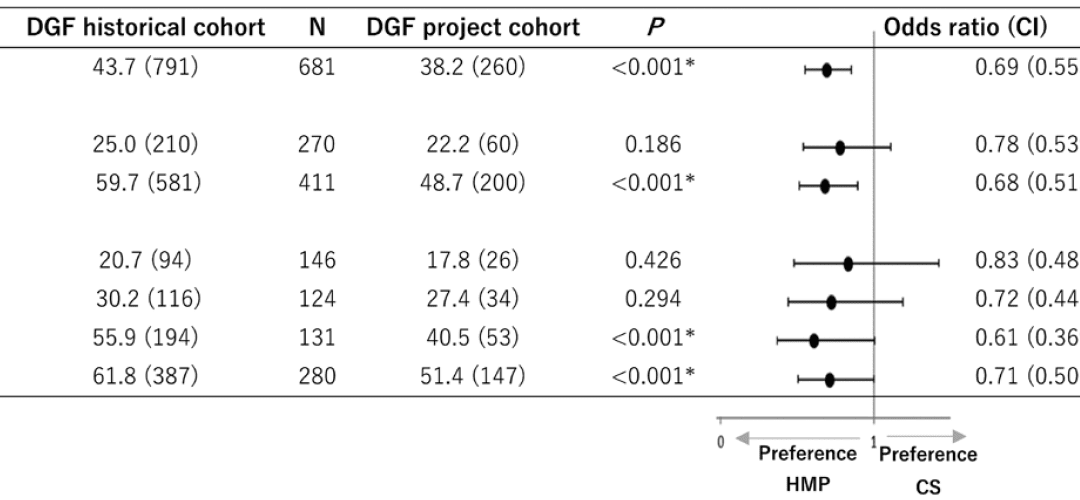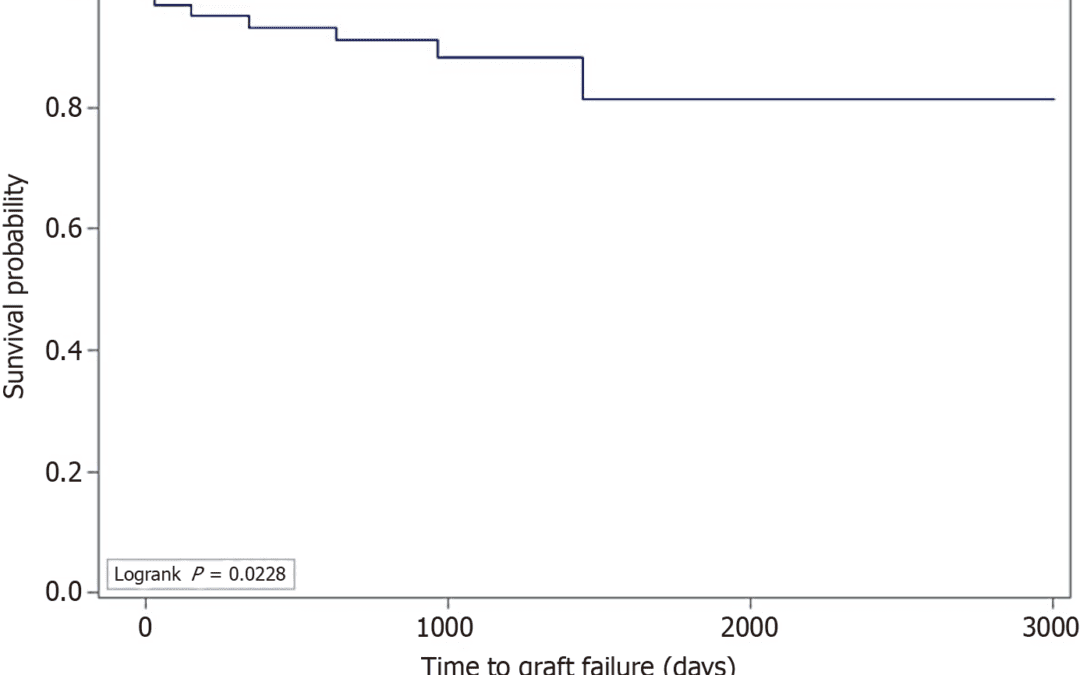An article published in Transplantation by Brat et al. presented the evaluation of a 2-year project to implement continuous nonoxygenated hypothermic machine perfusion (HMP) as standard of care for all types of deceased donor kidneys in the Netherlands. The retrospective study focused on the effect of the implementation of the HMP program from organ retrieval to transplantation compared to a historical cohort of static cold storage. The main outcomes analyzed were the rate of delayed graft function (DGF) and the duration of DGF, as well as the safety and feasibility. The project intent to treat cohort included 681 kidneys which were compared to 1,812 kidneys in the historical cohort.
They found that:
- There was a significant decrease in DGF in the project cohort compared to the historical cohort (38.2% vs. 43.7%)
- The duration of DGF decreased significantly from a median duration of 9 days in the historical cohort to 7 days in the project cohort
- The odds ratio for DGF was 0.69 for the project cohort favoring machine perfusion over static cold storage
- The decrease in DGF was more significant when looking at DCD donors versus DBD donors

Overall, they concluded that continuous nonoxygenated HMP preservation was shown to be feasible and safe, and that as a result of introducing this National standard DGF rates and duration of DGF decreased significantly compared with a historical cohort.
Read the full article here: https://doi.org/10.1097/tp.0000000000003845
The Latest





